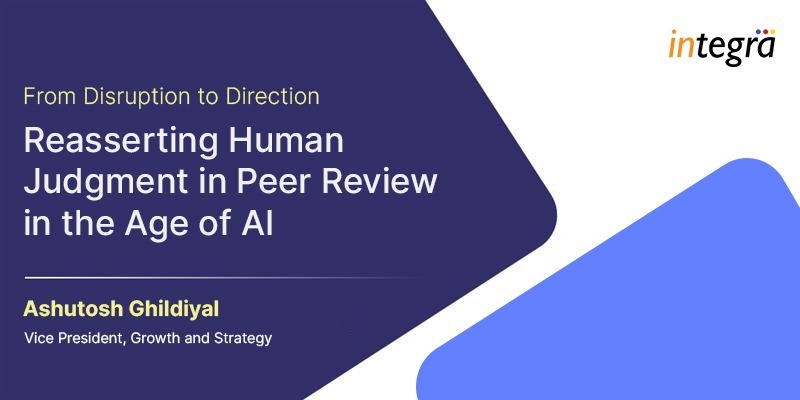AI and the Future of Open Access Publishing: Revolutionizing Academic Research and Dissemination

The open access (OA) movement has fundamentally reshaped scholarly communication. By making research freely available online, OA journals have democratized knowledge access and accelerated scientific progress. However, the ever-growing volume of research publications presents challenges for both researchers and publishers. This is where Artificial Intelligence (AI) steps in, poised to revolutionize the future of open access publishing.
The Rise of Open Access Publishing
The open access publishing movement has gained significant momentum in recent years, transforming the landscape of academic research and scholarly communication. Open access journals provide free and unrestricted access to peer-reviewed research articles, breaking down barriers that have traditionally limited the dissemination of knowledge
A 2023 UNESCO report estimates that over 50% of scholarly articles are now published in open access journals. This shift is driven by the recognition that free access to research fosters collaboration, innovation, and wider societal impact. The open science movement further empowers researchers to share not only publications but also data and methodologies, promoting greater transparency and reproducibility in research.
How AI is Transforming Open Access Publishing
AI is rapidly transforming various aspects of open access publishing, with significant implications for both researchers and readers. Here’s a glimpse into how AI is changing the game:
- Faster Publication Timelines: AI-powered tools can analyze submissions for formatting errors, suggest potential reviewers, and even generate preliminary assessments. This streamlines the editorial workflow, leading to faster publication times – a boon for researchers eager to share their findings.
- Reduced Editorial Costs: AI can automate many routine editorial tasks, including grammar and plagiarism checks (as done by tools like iNLP), reducing the workload for human editors. This can translate to lower processing fees for open access journals, making them more sustainable and accessible to a wider range of researchers, particularly those from institutions with limited resources.
- Improved Quality and Consistency: AI-powered language assessment tools can identify and address common grammatical errors, stylistic inconsistencies, and even potential plagiarism concerns, ensuring a higher standard of language quality across published articles. This not only benefits readers by providing a more polished reading experience but also enhances the credibility and reputation of open access journals.
- Enhanced Discoverability and Accessibility of Research: With the vast amount of scholarly literature available, discoverability is a major challenge. AI-powered recommendation systems can personalize search results and suggest relevant articles to researchers based on their interests and past reading habits. Additionally, AI can translate research summaries or even entire articles into different languages (as envisioned by some AI-based language assessment platforms), making them accessible to a wider global audience. This promotes international collaboration and knowledge exchange beyond traditional language barriers.
- Personalized Research Experience for Scholars: AI can analyze reader behavior and preferences, allowing open access platforms to curate content feeds and recommend articles tailored to individual users. This not only enhances the user experience but also ensures researchers are exposed to the most relevant research in their field, accelerating their own research progress.
Challenges and Ethical Considerations
Despite the promising potential, AI integration in open access publishing raises certain challenges and ethical considerations that need to be addressed:
- AI Bias: AI algorithms are trained on existing data, which can perpetuate biases present in the academic literature. Mitigating bias in AI models requires careful data selection and ongoing monitoring.
- AI-Generated Plagiarism: AI writing assistants can inadvertently create content that unintentionally plagiarizes existing work. Researchers need to be trained on responsible AI use and proper citation practices.
- Privacy Concerns: The use of AI in peer review raises concerns about reviewer anonymity. Transparent guidelines and ethical frameworks are essential to ensure responsible implementation.
- Transparency in AI Systems: The “black box” nature of some AI models can make it difficult to understand how they arrive at their conclusions. Openness and transparency in AI development are crucial to building trust in AI-powered publishing workflows.
- Human Oversight in Publishing: While AI can automate tasks, human expertise remains critical. Editors and reviewers must maintain control over the editorial process to ensure quality and integrity of publications.
The Future of AI and Open Access: Towards a More Equitable and Accessible Academic Landscape
The future of open access publishing lies in harnessing the power of AI responsibly. We can expect to see:
- AI-driven Open Access Platforms: Platforms that leverage AI to streamline manuscript submission, peer review, and editorial workflows, leading to more efficient and cost-effective publishing models.
- AI-powered Research Collaboration: AI can analyze vast amounts of research data to identify potential collaborators and research synergies, fostering interdisciplinary research and innovation.
- AI-assisted Peer Review: AI can support human reviewers by identifying potential weaknesses, suggesting relevant references, and flagging potential biases in manuscripts. However, human judgment will remain central to the peer review process.
- AI-generated Educational Content: AI can create personalized learning materials and summaries of research findings, making complex scientific concepts more accessible to a wider audience.
- Democratization of Knowledge: By removing financial barriers and language limitations, AI can facilitate the global dissemination of research, fostering a more inclusive and equitable academic landscape.
Conclusion: Embracing AI to Unlock the Full Potential of Open Access Publishing
The potential of AI to revolutionize open access publishing is undeniable. From accelerating research dissemination to fostering a more inclusive global academic landscape, AI offers a wealth of opportunities. However, responsible implementation is key. Addressing issues of bias, transparency, and human oversight will be crucial to building trust and ensuring the ethical use of AI in scholarly communication. By harnessing the power of AI responsibly, we can unlock the full potential of open access publishing, democratizing knowledge and accelerating scientific progress for the benefit of all.
Recent Blogs

Why LaTeX Still Matters in Scholarly Publishing—and How the Right Partner Makes All the Difference

Print, Pedagogy, and AI: The New Architecture of Educational Publishing


